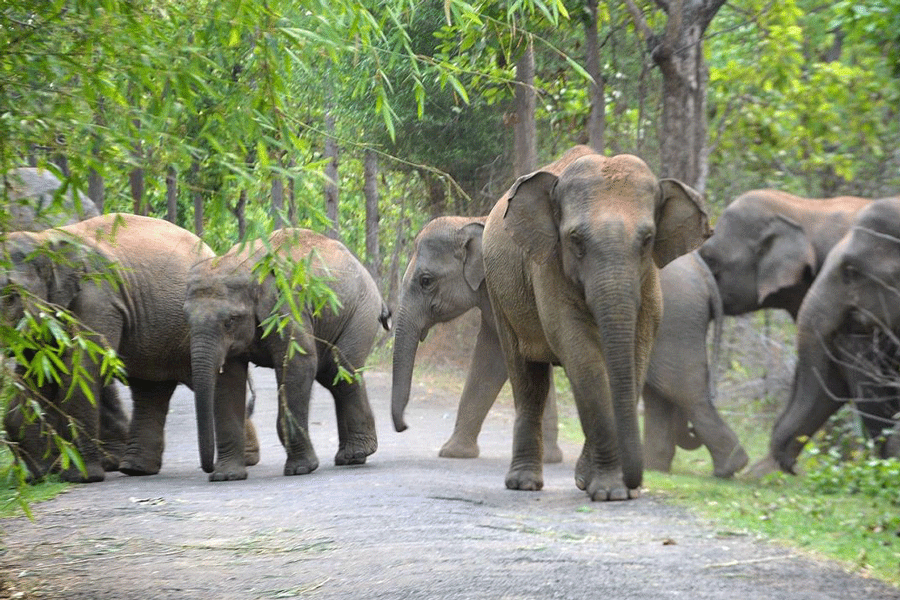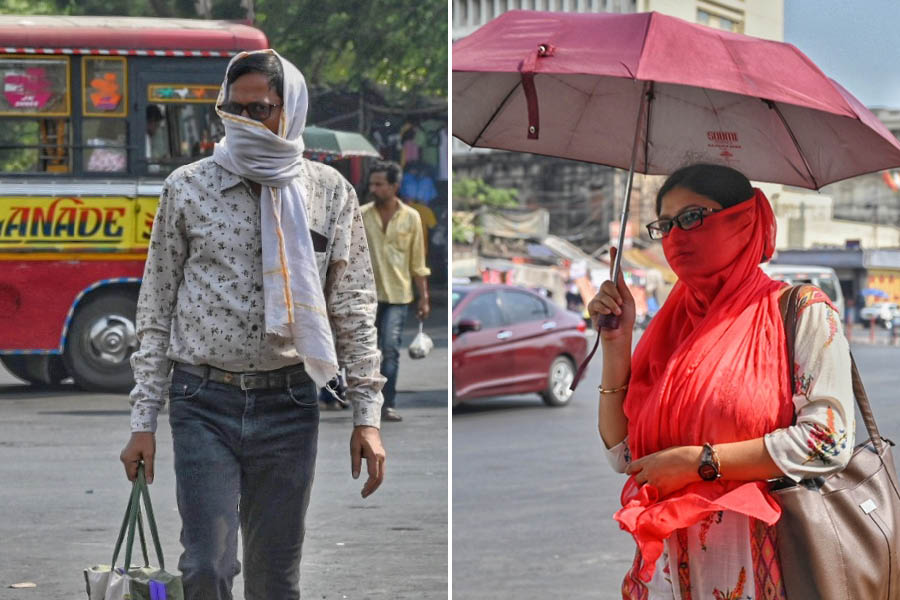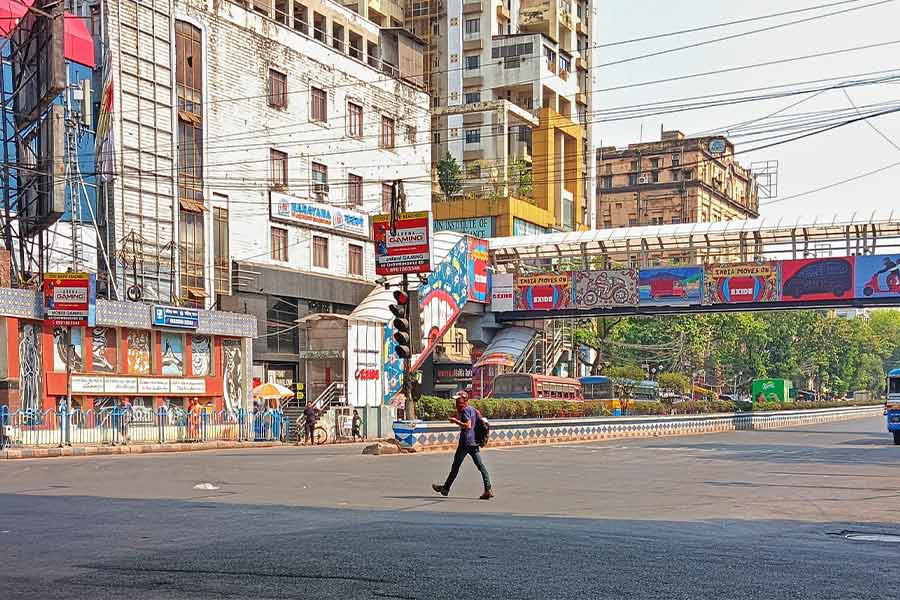A migration bid across the Indo-Bangla border in north Bengal was foiled in the nick of time on Tuesday.
Those crossing over were not humans, though, but two elephants.
For most of Tuesday, the two pachyderms kept officials of multiple agencies on both sides of the border on their toes.
Eventually, a joint operation — that involved the forest departments, border guards and the local administrations on both sides — managed to bring them back to India late in the evening.
In April 2015, a lone Indian tusker that had strayed into Rajshahi district of Bangladesh from Murshidabad was gunned down by the Border Guard Bangladesh (BGB). The guards were apprehensive since the elephant was suspected to have damaged human habitations.
The situation was volatile on Tuesday as well, said foresters on both sides of the border. A Bangladeshi forest official said a man in that country who was attacked by one of the two elephants died later.
The area where the elephants crossed over to is densely populated and the residents are not familiar with elephants, they said. The safe return of the elephants came as a relief to both sides.
“We got a call from the Border Security Force about two elephants entering Bangladesh around 6am on Tuesday,” said Bhaskar J.V., the chief conservator of forests (wildlife), north Bengal.
According to forest officials, the two elephants, an adult makna (male without tusks) and a sub-adult male, had been living in the Ambari range in the Baikunthapur forest division, between the Mahananda and Teesta rivers, in Jalpaiguri district.
“They would often wander in the human habitations along the border in the morning. On Tuesday, they reached the border at the Fulbari Nabagram checkpost in Jalpaiguri district and crossed over, said Bhaskar.
The border is porous and the gates usually remain open from 6am to 6pm for farmers on both sides, said an official of the local administration.
The BGB and the Bangladesh forest department were alerted by the Indian authorities.
The elephants reached the Tentulia upazilla in Panchagarh, the northernmost district of Bangladesh.
“The area is not known to have elephants and there is no elephant management plan as such in that area. That is why we were very apprehensive,” said a forest official in north Bengal.
The Indian authorities wanted a team of around 20 people to enter Bangladesh and drive the elephants back.
But the plan was caught up in procedural hassles. Allowing a large group inside with guns and without passports and visas was something that needed clearance from the capital.
An Indian wildlife conservation and research agency helped the foresters in the operation.
“As the Indian team was stuck at the border, some suggestions were passed on to the Bangladeshis. They barricaded the villages to prevent the elephants from going deep inside Bangladesh. Flaming torches and hoots were used to push the elephants back,” said Koustav Choudhury, executive director of Solitary Nature and Animal Protection (SNAP) Foundation who was involved in the operation to drive the two elephants back to India.
Bhaskar, the forest official, said they also banked on “the natural tendency” of the elephants to return to their original habitat.
Around early evening, the elephants started coming back.
Bangladeshi officials were successful in restricting their movement and prodding them to come back, said Bhaskar.
“We used crackers and hoots to try and push the elephants back. Our personnel are not trained in handling elephants but they did their best. Around late evening, the elephants started going back,” said Nurunnahar, assistant conservator of forests, Dinajpur, Bangladesh forest department.
“One of the elephants trampled a man who died later.”
The elephants reached the no-man’s land after 9pm. The Indian team, armed with sirens and searchlights, sprung into action and reached the spot to drive the elephants into India.
The BSF opened the gates and the elephants entered India through the border at Phansidewa in western Dooars, in Darjeeling district.






